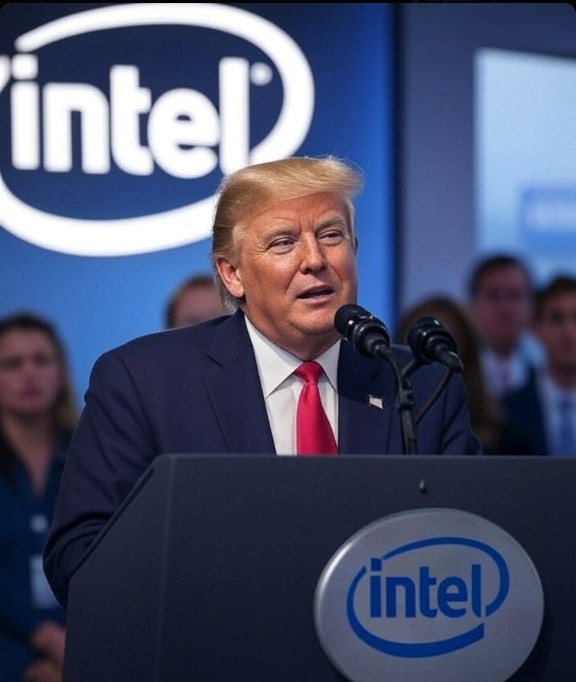One notes with some amusement the consternation that has greeted the Trump Administration’s decision to buy a ten percent stake in Intel for the American people, in exchange for the billions of dollars already pledged to the company. Critics insist that Washington has strayed from the purest form of capitalism — socialism! they decry — as though Washington had hitherto been a temple to laissez-faire orthodoxy. In fact, the Intel arrangement is not only sensible, it is overdue, and very much in furtherance of conservative principles of fiscal responsibility.
In practical terms, the deal amounted to the U.S. government converting previously promised subsidies into stock. Instead of just giving away money as had been planned, Washington received about 433 million non-voting shares of Intel at $20.47 apiece (a roughly a 9.9 percent stake) in exchange for $8.9 billion tied to the CHIPS Act and Secure Enclave program. These shares carry no board seats, no voting power, and no special control; they simply give taxpayers a direct financial stake in Intel’s success.
For decades, our government has made a sport of distributing subsidies like so much largesse at a medieval feast. Green energy startups, biofuels, electric car manufacturers, solar boondoggles, Big Pharma, you name it, all have feasted upon the public purse, with taxpayers left holding nothing but the bill. Imagine, instead, had we taken equity in those ventures. The people of California, Nevada, and New York, each of whom helped finance Tesla’s early ambitions when it’s stock price was a tiny fraction of what it is now, would today enjoy the fruits of that gamble, instead of Elon Musk alone.
The Intel deal corrects this error. To reiterate, these are non-voting shares; Washington acquires no throne in the boardroom, no seat at the table. It simply participates, as every investor does, in the upside if Intel succeeds. We have, in fact, seen this play before. During the financial crisis of 2008, the government took equity in banks, which later repurchased the shares — and the taxpayer profited. A rare instance in which federal intervention did not merely consume wealth, but created it.
For those who complain about this, tell me why it’s better that the money simply be given away to Intel with nothing in return. Why is it better than using that same money to receive valuable stock?
Of course, there must be limits. It would be intolerable if Washington were to use its new stake to pick winners and losers among American firms. One can, and indeed should, distinguish between favoring domestic industry against foreign rivals — which is prudence — and favoring one American firm over another, which is corruption. The government must never twist the law to exalt Intel at the expense of its American competitors.
But we should also recognize that this arrangement is not some novel deviation from capitalist principle. Our states, through their pension funds, have long invested billions in both public companies and private ventures. Abroad, sovereign wealth funds — Norway’s, Singapore’s, Abu Dhabi’s — hold enormous stakes in American corporations. China itself has purchased slices of Wall Street banks and Silicon Valley ventures. If foreign governments may profit from American enterprise, why should the American taxpayer be excluded? The only thing remarkable about the Intel deal is that Washington has been so timid, for so long, in declining to do what others have done as a matter of course.
And consider this: had Washington invested, rather than merely redistributed, the immense revenues flowing into Social Security since its inception, the program would not be flirting with insolvency today. Do you ever wonder why Social Security is perpetually on the verge of bankruptcy, while our IRAs effortlessly produce record returns at a fraction of the cost? Compounded equity returns, not government IOUs, would have left the trust fund swollen by trillions. Likewise, had the federal government invested wisely rather than consumed profligately, the national debt would stand at only a fraction of its present enormity.
So let us dispense with the melodrama. The Intel stake is no socialist plot. It is an elementary matter of fiscal sanity. If Washington insists on investing billions — and it does — then it is only just that the taxpayers should receive something more than a press release in return. We deserve equity. We deserve profit. And we deserve a government that, for once, behaves less like a wastrel and more like a responsible steward.
And let us hope this begins not merely a program but a conversation, a more broad movement away from consumption and toward investment. Not simply in the public sector, but in our private lives as well. For if conservativism demands we believe anything, it is that the future belongs not to those who spend, but to those who build.












